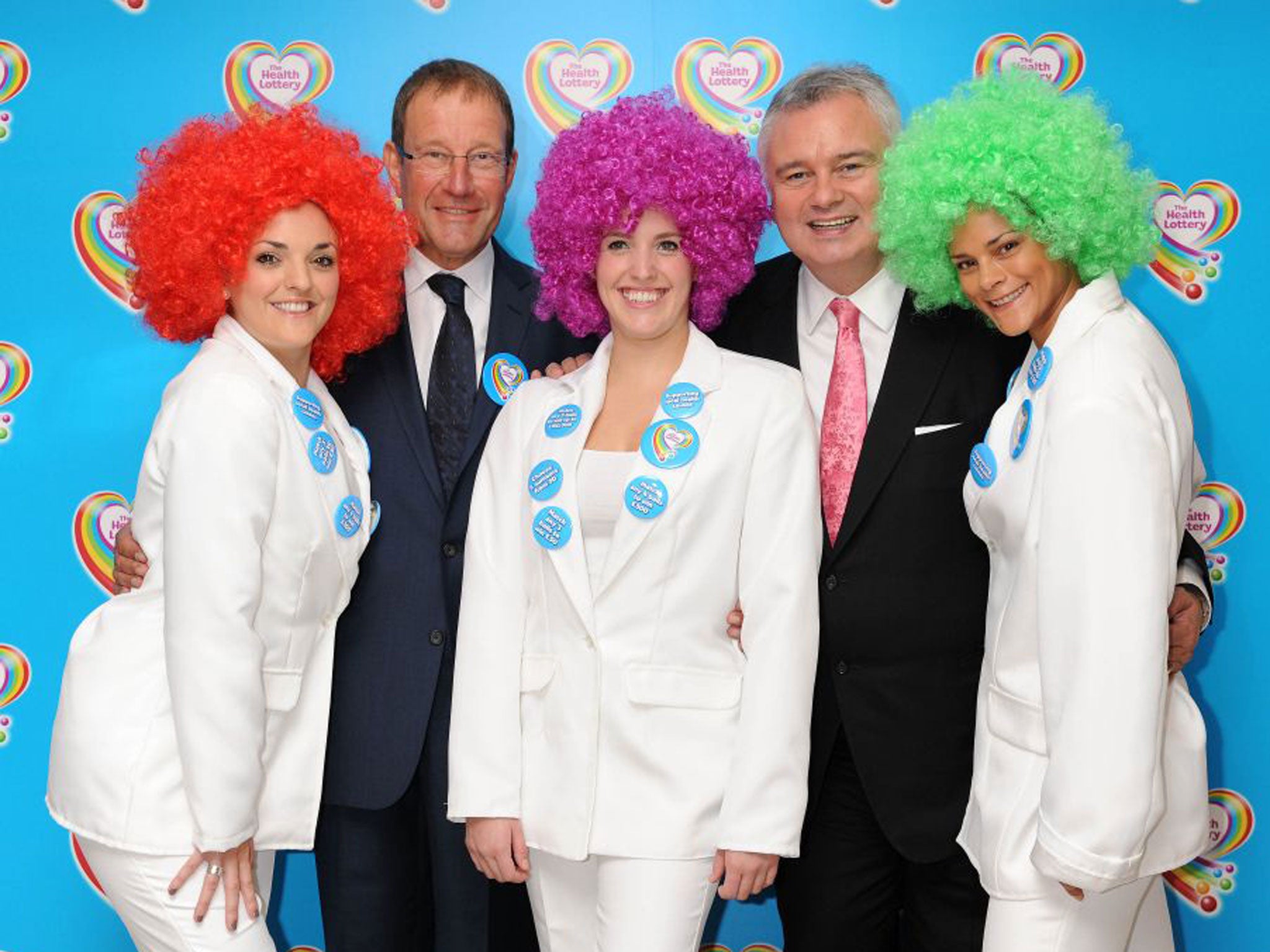Law on lotteries under review that could make Richard Desmond’s Health Lottery give more to charity
Ministers order consultation amid questions over amount given to good causes

Ministers have ordered a review of the laws on lotteries amid concern about the amount of money Richard Desmond’s Health Lottery pays to good causes.
The Government confirmed this week that a consultation on “society lotteries” – promoted nationally by the Health Lottery – will be held in coming months.
The Culture Secretary Maria Miller made the move amid speculation about the sales impact of Mr Desmond’s scheme on the National Lottery and the amount of money raised for good causes.
Until 16 months ago, the National Lottery – whose operator Camelot Group is owned by the Ontario Teachers’ Pension Fund – enjoyed a monopoly on nationally-marketed prize draws.
In October 2011, Mr Desmond, whose other interests include the Daily Express, Channel 5 and the Television X pornography channel, launched the Health Lottery, which manages and administers UK prize draws on behalf of a collection of 51 smaller “society lotteries”. There is little difference between the two games. For £1 customers choose six numbers between 1 and 50 and check them against a twice-weekly televised draw.
However unlike the National Lottery, which gives 28 per cent of ticket sales to good causes, the Health Lottery legally contributes only 20 per cent.
The Health Lottery pays the lower rate because different rules apply to “society lotteries”, which have traditionally operated on a local basis.
Last summer the National Council for Voluntary Organisations expressed concern about the issue, telling the Department of Culture, Media and Sport: “It is of great importance that the Health Lottery does not set a dangerously low precedent of reducing the acceptable levels of lottery funds that must go to charity.”
However the Health Lottery has supporters in the third sector, such as Joe Saxton, founder of the research firm NpfSynergy, who chaired a recent meeting of charities. He said: “There was complete agreement that any increase would mean less money is raised for charities. The reason for this is simple. If you increased the minimum from the current 20 per cent to say 40 per cent all the current lotteries that have a 20 per cent or 25 per cent or 30 per cent profit will have to stop functioning, so that money will be lost.”
The National Lottery has claimed it is losing sales of £1m a week to Mr Desmond’s scheme, but lost a landmark legal challenge last August. The High Court said that the issue of whether multiple society lotteries should be permitted was “a political question” for ministers.
In research commissioned by the Department of Culture, Media and Sport, and released late last year, NERA Economic Consulting estimated that the Health Lottery was costing Camelot between £40,000 and £305,000 a week in lost sales. However it said that the total amount going to good causes was likely to be higher as a result of Mr Desmond’s scheme.
Announcing a consultation in December, the Culture Secretary, Maria Miller, said: “Lotteries are hugely important in raising very large amounts of money for charities and community groups up and down the country. But with a changing market it is right that we make sure that the main priority for each and every lottery is to raise money for good causes.”
A spokeswoman for Mr Desmond’s company Northern & Shell said the Health Lottery had raised £29m for charities. She said: “Camelot is over a hundred times the size of the Health Lottery, is a protected monopoly and has delivered record sales and profits for its Canadian owners.
“It controls more than 99 per cent of the UK lottery market, so there is really no viable comparison with the Health Lottery.
“The argument should not be about the percentage but about how to maximize the total contribution that society lotteries like the Health Lottery are able to make.”
Subscribe to Independent Premium to bookmark this article
Want to bookmark your favourite articles and stories to read or reference later? Start your Independent Premium subscription today.

Join our commenting forum
Join thought-provoking conversations, follow other Independent readers and see their replies